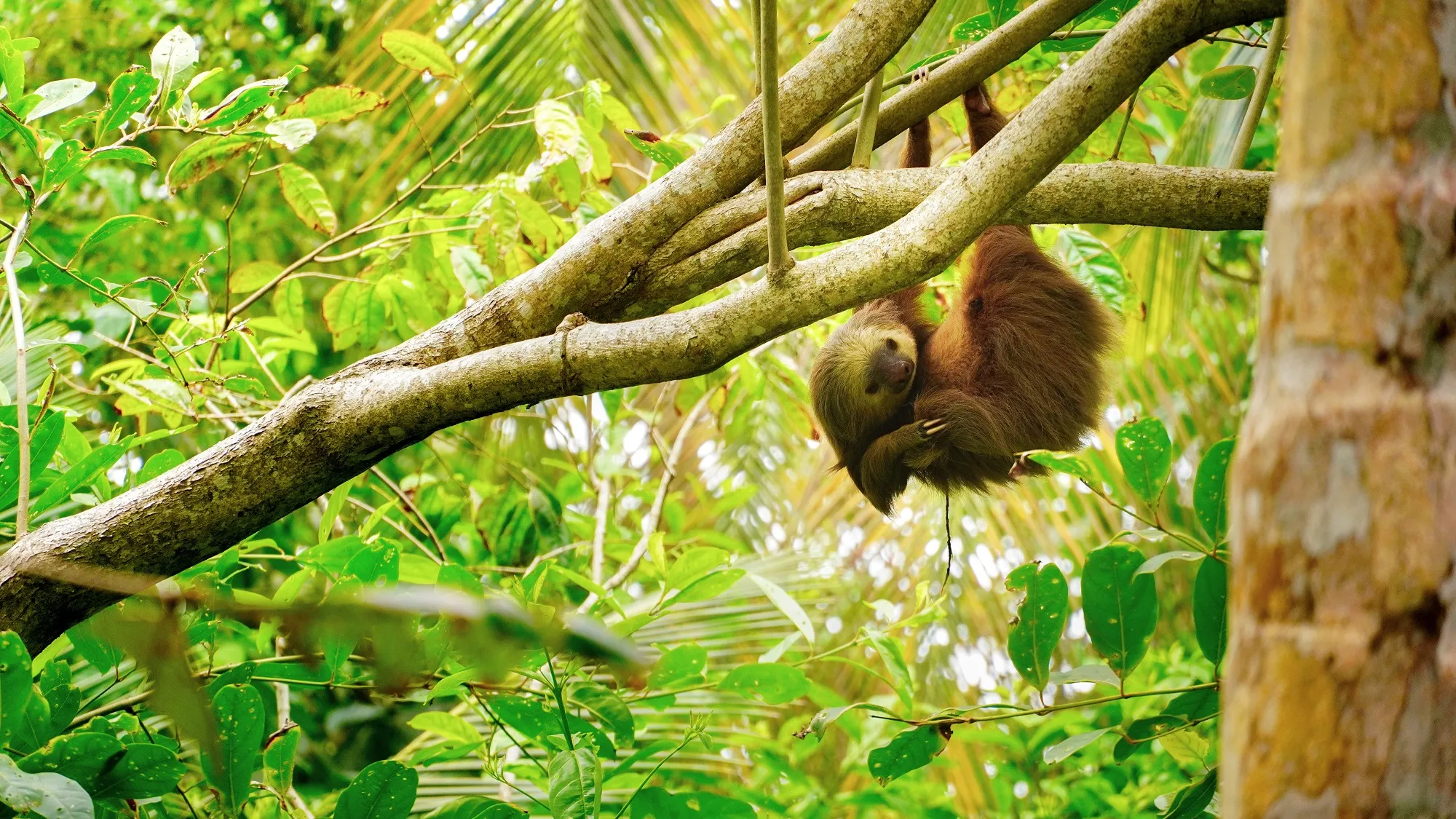
Happy birthday! Here’s to six years of the HCV Network Ltd. and our Secretariat
HCV Network Ltd. and its Secretariat are celebrating their 6th anniversary! Since its launch, the Secretariat team has been actively working to help people understand and implement the HCV Approach by providing advice and technical support to stakeholders, coordinating projects, securing funding and cultivating collaborative relationships with member and non-member organisations. Read about some of the highlights of the Secretariat's activities.
Ten years after the HCV Network was created, a not-for-profit company registered as HCV Network Ltd. took form on 30 July 2015 and became the home of the HCV Network Secretariat, allowing it to operate independently from Proforest, its previous institutional host. Since then, the small Secretariat team has been working to help people understand and implement the HCV Approach by supplying guidance and technical support to stakeholders, coordinating projects, securing funding, and cultivating collaborative relationships with both member and non-member organisations.
Although a young organisation, the Secretariat is not short of a rich history and achievements. Here are a few of the highlights from the Secretariat’s activity.
2016
- From January 2016, HCV Network Ltd. formally started trading.
- Paulina Villalpando, Anders Lindhe and Ellen Watson (temporarily) are seconded from Proforest to HCV Network Ltd to support the transition.
- The Secretariat provided training to the Roundtable on Sustainable Palm Oil (RSPO) certification bodies and licensed assessors in Indonesia.
- The Mulago Foundation provides kick-off funding to the new Secretariat through its Henry Arnhold Fellowship award.
2017
- First team retreat takes place in Sweden, to define company policies and the company's strategy moving forward.
- Paulina Villalpando, Anders Lindhe, Sam Watson, Ruth Silva, Joss Lyons White, Ana Sofia Lorda, Olivia Scholtz, Arie Soetjiadi, and Marius von Essen joined the Secretariat team this year.
- Secretariat coordinates the development of the first HCV-HCSA Assessment Manual and takes on quality assurance of HCV-HCSA assessment reports.
- Secretariat publishes research on HCV Management & Monitoring in RSPO-certified plantations
2018
- Ellen Watson, Jimena Frojan, Felicia Lasmana, and Haryo Dewanto join the team.
- The HCV Approach was introduced into the Better Cotton Initiative (BCI) standard. The Secretariat collaborates with BCI to develop a series of tools to implement these new requirements.
2019
- The Secretariat becomes a founding member of the Global Platform for Sustainable Natural Rubber (GPSNR)
- Celia Pearson, Yudi Iskandarsyah and Stephan Wulffraat join the team.
- Peter Gardiner steps down as Legal Director, handing over to Ellen Watson.
- The Secretariat publishes a new guide for developing national/regional HCV interpretations
- The Secretariat publishes first Screening Guidance for identifying HCVs in landscapes and jurisdictions and presents to Global Landscapes Forum in Accra, Ghana (see video).
- The Secretariat continues work with the Better Cotton Initiative (BCI) and the Rainforest Alliance (RA)
- The Secretariat conducted trainings in Mexico, Malaysia, and Indonesia
2020
- Following the development of the 2018–2019 Communications Strategy, in 2020 the Secretariat hired a communications expert to provide support with communications.
- With support from a senior finance intern, the Secretariat developed a draft strategy exploring which financial institutions include HCV commitments in their investment and due diligence policies and why; the financial mechanisms available to the HCV Network that could help support protection of HCV areas; and the Secretariat’s strategy for engaging and strengthening relationships with this sector.
- The Secretariat supports Rainforest Alliance’s updated Sustainable Agriculture Standard (SAS).
- The Secretariat signed a five-year MoU with the High Carbon Stock Approach (HCSA) to strengthen collaboration on forest conservation and upholding community rights in tropical forests.
- The Secretariat coordinates an HCV-HCS screening in Indonesia and an HCV screening in Brazil
- Secretariat forms a working group for Licensed Assessor and Quality Panel Members
2021
- The Secretariat sets up an online learning platform
- Members vote for the new HCV Network logo
- Formation of Grower Discussion Group to communicate with growers on HCV-related topics
- Independent review of Assessor Licensing Scheme
- The first HCV Network Global Summit takes place on 2-3 June
- The Secretariat coordinates the development of its new Roadmap
- Launch of the Nature Positive Farming concept
- Launch of updated Screening Guide available in five languages
Despite the challenges of a small team, the Secretariat prides itself on its achievements, while acknowledging the need for continuous support from Members to help with the implementation of the Roadmap. Achievements include:
- New website launched in 2018
- Collaborating with organisations, initiatives and growing membership base
- Organising the first digital global HCV Summit in June 2021
- Maintaining healthy finances and reserves
- Team expansion
- Developing practical tools to implement the HCV Approach in different scenarios within and outside certification
- Providing quality assurance for HCV and HCS Forest identification in high-risk scenarios with more than 200 HCV and HCV-HCSA assessment reports evaluated
- Expanding uptake of practical tools for conservation in production contexts, including work with the Forest Stewardship Council (FSC), RSPO, HCSA, RA, BCI, Bonsucro and GPSNR.
In the year ahead we’re looking forward to:
- Publishing our Roadmap for 2021-2030 and galvanising support for a workplan to realise the Roadmap
- Implementing recommendations from the independent review of the ALS
- Continued collaboration with existing members and partners and new opportunities for collaboration
Related Posts
Astra-Academy is delivering an HCV Licensed Assessor Training Course from 13-15 April 2026
Read MoreThe Importance of Considering Land Use Planning and HCV Assessments for Disaster Mitigation
Every decision today shapes the fate of tomorrow's commit to protecting HCVs, and together we build a resilient future we all need and desire.
Read MoreDedicated webpage to more easily access resources on the Forest Integrity Assessment tool
Read MoreOur Partnerships
Alongside many global initiatives, our work with partners promotes practices that help meet the global Sustainable Development Goalsand build a greener, fairer, better world by 2030.


Femexpalma
In April 2022, FEMEXPALMA and the HCV Network signed a 5-year cooperation agreement to promote sustainable production of palm oil in Mexico. FEMEXPALMA is a Mexican independent entity that represents palm production at the national level and promotes the increase of productivity in a sustainable way.
With global markets becoming stricter, for Mexican producers to be able to export to key markets such as the European Union, they must meet strict requirements such as certification by the Roundtable on Sustainable Palm Oil (RSPO). To be certified by RSPO, the HCV Approach must be applied prior to the establishment of any new oil palm plantations. With this cooperation agreement, the HCV Network will support FEMEXPALMA’s members and allies to design better strategies to identify, manage and monitor High Conservation Values and support smallholders to achieve RSPO certification and implement good agricultural practices.
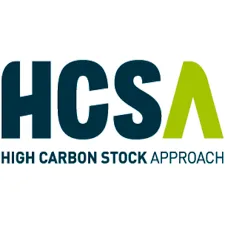

High Carbon Stock Approach
The High Carbon Stock Approach (HCSA) is an integrated conservation land use planning tool to distinguish forest areas in the humid tropics for conservation, while ensuring local peoples’ rights and livelihoods are respected.
In September 2020, HCV Network and the HCSA Steering Group signed a five-year Memorandum of Understanding (MoU) to strengthen their collaboration to conserve forests and uphold community rights in tropical forests. The HCS and HCV Approaches are cornerstones of corporate no deforestation and conservation commitments, and increasingly for actors working at different scales. The collaboration aims to further support effective implementation of these commitments through increased uptake of the HCV and HCS tools.
Through this MoU, HCSA and HCVRN are pursuing two main strategic goals:
- Strive to promote the application of the two approaches in tropical moist forest landscapes and explore further opportunities for collaboration.
- Ensure that, where the two approaches are applied together, this happens in a coordinated, robust, credible, and efficient manner, so that HCS forests and HCVs are conserved, and local peoples’ rights are respected.


World Benchmarking Alliance
From May 2022, the HCV Network is an ally at the World Benchmarking Alliance (WBA). WBA is building a diverse and inclusive movement of global actors committed to using benchmarks to incentivise, measure, and monitor corporate performance on the SDGs, and will assess and rank the performance of 2,000 of the world’s most influential companies against seven systems of transformation by 2023.
The scope of WBA’s circular transformation was expanded to cover nature and biodiversity as recognition of the need for greater understanding, transparency and accountability of business impact on our environment. The WBA Nature Benchmark was launched in April 2022, which will be used to rank keystone companies on their efforts to protect our environment and its biodiversity. As HCV Areas are recognised as key areas important for biodiversity, companies that publicly disclose their actions to identify and protect HCVs will contribute to the assessment of their performance against the benchmark.
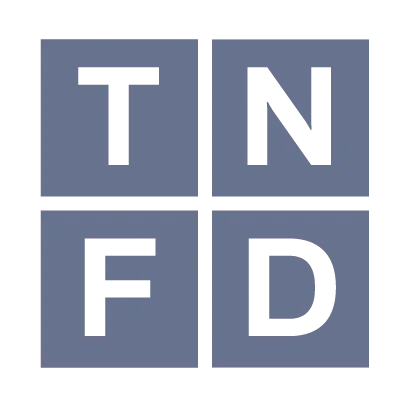

Taskforce on Nature-related Financial Disclosures - TNFD
The Taskforce on Nature-related Financial Disclosures (TNFD) is a global, market-led initiative, established with the mission to develop and deliver a risk management and disclosure framework for organizations to report and act on evolving nature-related risks, with the aim of supporting a shift in global financial flows away from nature-negative outcomes and toward nature-positive outcomes.
In April 2022, the HCV Network joined the TNFD Forum. The TNFD Forum, composed of over 400 members, is a world-wide and multi-disciplinary consultative network of institutional supporters who share the vision and mission of the task force.
By participating in the Forum, the HCV Network contributes to the work and mission of the taskforce and help co-create the TNFD Framework which aims to provide recommendations and advice on nature-related risks and opportunities relevant to a wide range of market participants, including investors, analysts, corporate executives and boards, regulators, stock exchanges and accounting firms.


Aquaculture Stewardship Council
The Aquaculture Stewardship Council (ASC) is the world’s leading certification scheme for farmed seafood – known as aquaculture – and the ASC label only appears on food from farms that have been independently assessed and certified as being environmentally and socially responsible. In 2021, the HCV Network and ASC formalised their collaboration through a Memorandum of Understanding (MoU). The MoU represents the first step in a fruitful relationship aimed at conserving HCVs in aquaculture. Although, existing guidance on the use of the HCV Approach currently focuses mainly on forestry and agriculture, the HCV Approach is however generic, and in principle also applicable to aquatic production systems. Through this MoU, this is recognised by the Aquaculture Stewardship Council (ASC) in their ASC farm standard, in which the protection of HCV areas is mentioned in the context of expansion
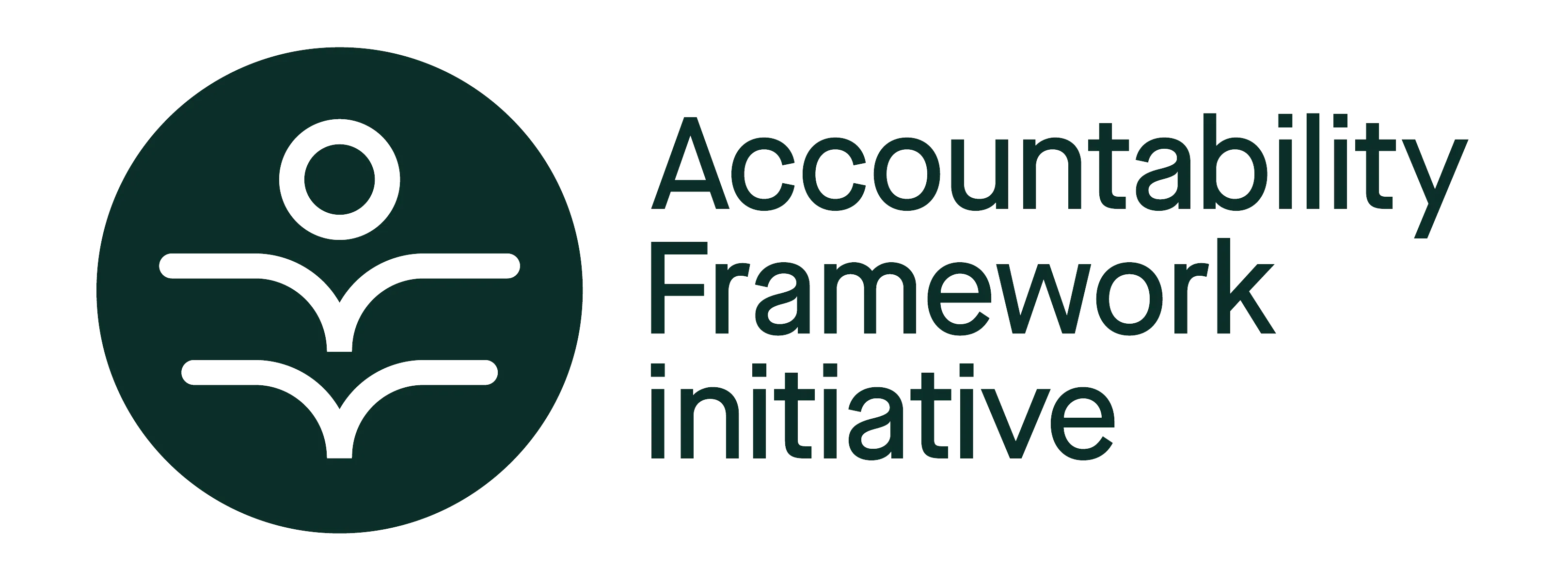

Accountability Framework Initiative
The Accountability Framework initiative (AFi) is a collaborative effort to build and scale up ethical supply chains for agricultural and forestry products. Led by a diverse global coalition of environmental and human rights organizations, the AFi works to create a “new normal” where commodity production and trade are fully protective of natural ecosystems and human rights. To pursue this goal, the coalition supports companies and other stakeholders in setting strong supply chain goals, taking effective action, and tracking progress to create clear accountability and incentivize rapid improvement. In July 2022, the HCV Network joined AFi as a Supporting Partner. AFi Supporting Partners extend the reach and positive impact of the AFi by promoting use of the Accountability Framework by companies, industry groups, financial institutions, governments, and other sustainability initiatives, both globally and in commodity-producing countries.


Biodiversity Credit Alliance
The Biodiversity Credit Alliance (BCA) is a global multi-disciplinary advisory group formed in late 2022. Its mission is to bring clarity and guidance on the formulation of a credible and scalable biodiversity credit market under global biodiversity credit principles. Under these principles, the BCA seeks to mobilize financial flows towards biodiversity custodians while recognising local knowledge and contexts.
The HCVN joined the BCA Forum in August 2023 to learn more from the many organizations already coming together to find effective pathways to opening up credit-based approaches, and how to contribute our knowledge and experience of years of working in a practical way, often with global sustainability standards and their certified producers, to protect what matters most to nature and people.
.webp)
.webp)
Nature Positive Forum
The Nature Positive Initiative is a group of stakeholders coming together to find ways to unlock success and achieve Nature Positive - a global societal goal defined as ‘halt and reverse nature loss by 2030 on a 2020 baseline, and achieve full recovery by 2050’, in line with the mission of the Kunming-Montreal Global Biodiversity Framework.
Core work includes preserving the integrity of ‘Nature Positive’ as a measurable 2030 global goal for nature for business, government, and other stakeholders, and providing the tools and guidance necessary to allow all to contribute. The initiative also advocates for the full implementation of the Kunming-Montreal Global Biodiversity Framework by governments and other stakeholders.
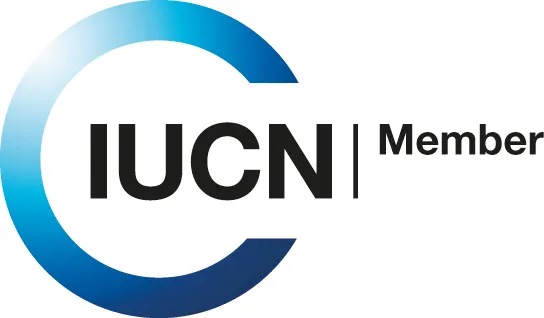

IUCN
IUCN is a membership Union uniquely composed of both government and civil society organisations. It provides public, private, and non-governmental organisations with the knowledge and tools that enable human progress, economic development, and nature conservation to take place together.
Created in 1948, IUCN is now the world’s largest and most diverse environmental network, harnessing the knowledge, resources and reach of more than 1,400 Member organisations and around 15,000 experts. It is a leading provider of conservation data, assessments, and analysis. Its broad membership enables IUCN to fill the role of incubator and trusted repository of best practices, tools, and international standards.
IUCN provides a neutral space in which diverse stakeholders including governments, NGOs, scientists, businesses, local communities, indigenous peoples’ organisations, and others can work together to forge and implement solutions to environmental challenges and achieve sustainable development.
Working with many partners and supporters, IUCN implements a large and diverse portfolio of conservation projects worldwide. Combining the latest science with the traditional knowledge of local communities, these projects work to reverse habitat loss, restore ecosystems, and improve people’s well-being.

Get Involved
Our Mission as a network is to provide practical tools to conserve nature and benefit people, linking local actions with global sustainability targets.
We welcome the participation of organisations that share our vision and mission to protect and enhance High ConservationValues and the vital services they provide for people and nature. By collaborating with the Network, your organisation can contribute to safeguarding HCVs while gaining valuable insights and connections that support your sustainability goals.
We are seeking collaborative partners to help expand and enhance our work, as well as talented professionals who can join the growing Secretariat team, and for professionals who can contribute to the credible identification of High Conservation Values globally.
Join us in securing the world’s HCVs and shaping a sustainable future.


